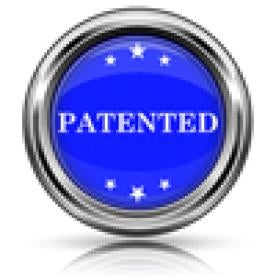Takeaway: Information contained in exhibits or portions of exhibits, but not discussed in the Petition, is not incorporated into the Petition merely by the presence of such exhibits in the record.
In its Decision, the Board denied Petitioner’s Request for Rehearing. According to the Board, Petitioner had not demonstrated that the Board’s Decision had misapprehended or overlooked matters raised in the Petition.
The Board’s Decision had denied Petitioner’s request for institution ofinter partes review of claims 1-3, 8-19, 22-28, 31-36, and 41-44 of the ‘110 patent. All of the proposed grounds of unpatentability were based on alleged obviousness under 35 U.S.C. § 103(a). Petitioner had requested rehearing of the Board’s Decision, arguing (1) that the Board overlooked certain substantive grounds provided by Petitioner in support of its “motivation to combine” arguments; (2) that the Board had overlooked Patent Owner’s response to Petitioner’s substantive grounds for the combination of the applied references; and (3) that the Board had abused its discretion by using an incorrect legal standard for finding obviousness over a single reference.
In rejecting Petitioner’s first argument, the Board asserted that Petitioner had misunderstood the Board’s reasons for denying the Petition. According to the Board, because Petitioner had not specifically identified the differences between the claimed invention and the applied art, the Board was not able to properly evaluate the reasons offered by Petitioner for combining the Viescas, Peapod, and Filepp references. Moreover, the Board found that Petitioner’s Request for Rehearing had not identified the location in the Petition where each matter was previously addressed as required by 37 C.F.R. § 42.71(d). Further, the Board found that while certain information asserted by Petitioner was alleged to be contained in exhibits or portions of exhibits, such information was not incorporated into the Petition merely by the presence of such exhibits in the record.
In rejecting Petitioner’s second argument, the Board stated that “contrary to Petitioner’s assertion, nothing may be gleaned from the Patent Owner’s challenge or failure to challenge the grounds of unpatentability for any particular reason.” Thus, the Board contended that it had not abused its discretion in refraining from limiting its analysis “of Petitioner’s arguments in view of the challenges to the grounds for unpatentability presented by Patent Owner in the Preliminary Response.”
In rejecting Petitioner’s third argument, the Board found that Petitioner had not asserted any grounds of unpatentability based on any of the references applied individually. Instead, the Board found that Petitioner had only challenged the claims based on asserted combinations of references. This led the Board to conclude that it could not overlooked or misapprehended any arguments by Petitioner relating to obviousness based on a single prior art reference, because such arguments had not been made previously (i.e., such arguments were not raised in the Petition).
Edmund Optics, Inc. v. Semrock, Inc., IPR2014-00599
Paper 16: Decision Denying Patent Owner’s Request for Rehearing
Dated: October 15, 2014
Patent 7,119,960 C1
Before: William A. Capp, Trenton A. Ward, and David C. McKone
Written by: Capp



 i
i